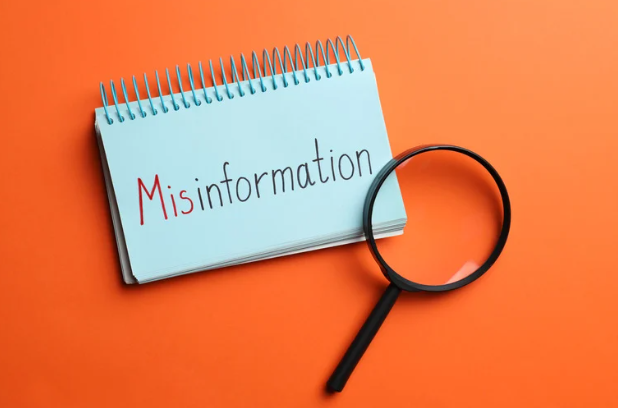

Sustainable Housing Concerns Rise Amid DC Real Estate Misinformation
The Washington, DC housing market recently faced a wave of uncertainty triggered by a fake real estate post circulating online. The post falsely claimed that federal budget cuts would lead to a collapse in the local housing market, causing widespread fear among residents and investors.
Concerns grew over the potential impact on housing affordability and the future of sustainable housing initiatives in the city. Many feared that reduced federal funding would stall projects aimed at increasing energy-efficient and eco-friendly housing options.
The misinformation spread quickly, prompting discussions about the importance of accurate information and the role of sustainability in the housing market. Sustainable housing has been a growing focus in Washington, DC, with efforts to incorporate energy-efficient technologies and environmentally friendly materials into new developments.
The spread of misinformation about federal cuts raised concerns about the continuation of these initiatives. Residents worried that decreased funding could limit access to sustainable housing, making it harder for families to find affordable and eco-friendly homes. Developers also faced uncertainty, questioning whether planned projects focused on sustainability would be financially viable without government support.
The situation highlighted the delicate balance between policy decisions and the future of sustainable housing. The fake post sparked debates about how misinformation can influence public perception and impact real estate markets. Potential homebuyers hesitated to make decisions, fearing that housing prices would plummet or that sustainable housing projects would be abandoned.
Investors also grew cautious, leading to a temporary slowdown in market activity. This reaction underscored the importance of transparency and reliable information in maintaining market stability. It also emphasized the need for clear communication about sustainability initiatives and their resilience to policy changes.
Local government officials quickly addressed the misinformation, assuring residents that federal cuts would not derail the city’s commitment to sustainable housing. They emphasized ongoing projects aimed at improving energy efficiency and promoting environmentally responsible development. Efforts to strengthen public trust included hosting community meetings and providing updates on sustainable housing initiatives.
These actions aimed to reassure both residents and investors that the city remained dedicated to eco-friendly housing solutions, despite concerns over federal funding. The incident also raised awareness about the importance of sustainable housing in Washington, DC. Many residents recognized the value of energy-efficient homes, not only for environmental reasons but also for long-term cost savings.
Sustainable housing can lower utility bills, improve air quality, and contribute to a healthier living environment. These benefits have made eco-friendly homes increasingly desirable, leading to a growing demand for sustainable housing options. The recent misinformation underscored the need to protect and expand these initiatives, regardless of external funding changes.
Developers in Washington, DC have continued to prioritize sustainability in new housing projects. Many are incorporating solar panels, energy-efficient appliances, and green building materials to meet consumer demand and environmental goals. Despite concerns over federal cuts, these developers remain committed to creating homes that are both affordable and eco-friendly.
They recognize that sustainability is not just a trend but a long-term investment in the city’s future. This dedication helps ensure that Washington, DC will continue to offer housing options that meet modern environmental standards. The incident also prompted discussions about the role of policy in supporting sustainable housing. While federal funding can play a significant role in promoting eco-friendly development, local and state policies are equally important.
Incentives such as tax breaks, grants, and low-interest loans can encourage developers to prioritize sustainability. By creating a supportive policy environment, cities like Washington, DC can ensure the continued growth of sustainable housing initiatives, even in the face of federal budget changes. This approach provides stability and encourages innovation in the housing market.
Community involvement has become a key factor in promoting sustainable housing in Washington, DC. Residents are increasingly participating in initiatives aimed at improving energy efficiency and reducing carbon footprints. Programs that encourage the use of renewable energy, water conservation, and sustainable landscaping have gained popularity.
By engaging the community, the city fosters a sense of shared responsibility for environmental stewardship. This collective effort strengthens the city’s commitment to sustainability and helps create healthier, more resilient neighborhoods. The spread of the fake real estate post served as a reminder of the challenges faced by the housing market in maintaining stability and public trust.
It also highlighted the resilience of Washington, DC’s commitment to sustainable housing. Despite misinformation and concerns over federal cuts, the city has demonstrated a strong dedication to eco-friendly development. By continuing to prioritize sustainability, Washington, DC can ensure a stable and environmentally responsible housing market for the future.
In the wake of the misinformation, local leaders have focused on improving communication and transparency within the real estate market. Efforts to combat false information and promote accurate reporting have become a priority.
This approach not only protects the housing market from future disruptions but also reinforces the city’s commitment to sustainability. By fostering trust and providing reliable information, Washington, DC can continue to support a thriving and eco-conscious housing market that meets the needs of its residents.




































